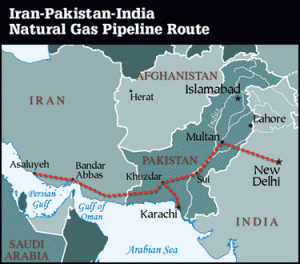This New Year, I didn’t want party blowers or noisemakers or confetti. I didn’t want countdowns or parties. I wanted real quiet, real rest, real time to intentionally think, reflect, and acknowledge the ending of 2013 and the beginning of 2014. I wanted to dwell in the transition, in the momentary suspension, in the weightless limbo, in the passage from one year to the next. I wanted to neatly gather its pages—its moments, musings, feelings—and lay my hand on top of the stack, the year in its entirety, and sigh a long, contented sigh. Bind it in reflection and in prayer, longing to be engaged in my living, aware of my being, and conscious of its changing and directing—intolerant of a passive blur of a life.
 There I was, chanting choice and carrying a banner for individual agency, convinced of my ability to accept, reject, create or reform my character; my personhood.
There I was, chanting choice and carrying a banner for individual agency, convinced of my ability to accept, reject, create or reform my character; my personhood.
Then I started thinking about my year: the humbling, the self-confrontation of weaknesses, the uncertainties. And though anyone who is familiar with me knows that my approach to life is of the smell-the-roses-wind-blown variety, this year challenged me. It challenged my flexibility, my control. It was a year of travel, of transitions. Those have a way of confronting and changing you. My coming and going quietly, gradually, altered me and I am still processing how that is.
A semester in Tanzania expanded the classroom walls, took biology to villages, to reserves; took lecture to living. In Ruaha Game Park, this sense of smallness, of humility, was absolute. Driving through the savannah on the way back to the lodge, Bon Iver’s “Holocene” playing in my ears (“And at once I knew I was not magnificent/…and I could see for miles and miles and miles”), I started to sense the bigness of the landscape and the smallness of me—nature’s power and my weakness. The savannah just seemed even more immense than it had minutes before: miles and miles and miles of dry grass and bush, Acacias and enormous Baobabs, stretched, reached, out my window and beyond, bowing to mountains in the distance—their peaks, so far that their greens gave way to blues, were an outline of the endless scene that spread out before me. And I felt small. I thought, “here, I’m a minority. Here, I stumble over language. Here, my thinking and my values are often not the norm. I look different, act differently, and think differently.” On the game drive earlier that day, perched on top of the truck (which we affectionately, and inexplicably, called The Aardvark), we passed a bull elephant—an angry one. He trumpeted, he tore at leaves and branches, and he stomped his feet. His power was visible and incredible. If he had carried out his charges I, almost eye-to-eye level with him, would have been totally helpless. My lack of control was stark—nature did not, does not, and should not bend at my will. May I come to terms with my smallness, I told myself. May I let it breed humility in me. And may it change my perspective—one shaped by the West, the great believer in power, in independence, in control, in the accumulation of wealth and in the fostering of safety, security, comfort, and luxury: the West who makes nature bend at its will; the West who, in its industriousness, efficiency, and power—forgets its smallness and loses touch with the reality, and beauty, of vulnerability. “Too much power, too little/knowledge,” Wendell Berry writes. And I think he is right…there is some truth, some value, in being a minority—in being okay with smallness.
Humility and a willingness to relinquish control: these, I’m realizing, need to be repeated in my head and practiced in my living. They are especially necessary attitudes to carry into the field of international development I’m moving towards, a field that is constantly contested: a field that is a battleground for cynicism.
Development—this season of life—feels like walking on water.
And so, recognizing the limit of my reason, my critical thinking, my abilities, my knowing, I throw my legs over the boat. I step on to a sea. I’m tiny, and things are about to get risky, messy, and uncomfortable. Trusting that I have a role to play in God’s redemptive plan, unfolding since The Garden, I move towards Jesus, His arms outstretched, His lips moving, saying, “Yes, come.”

